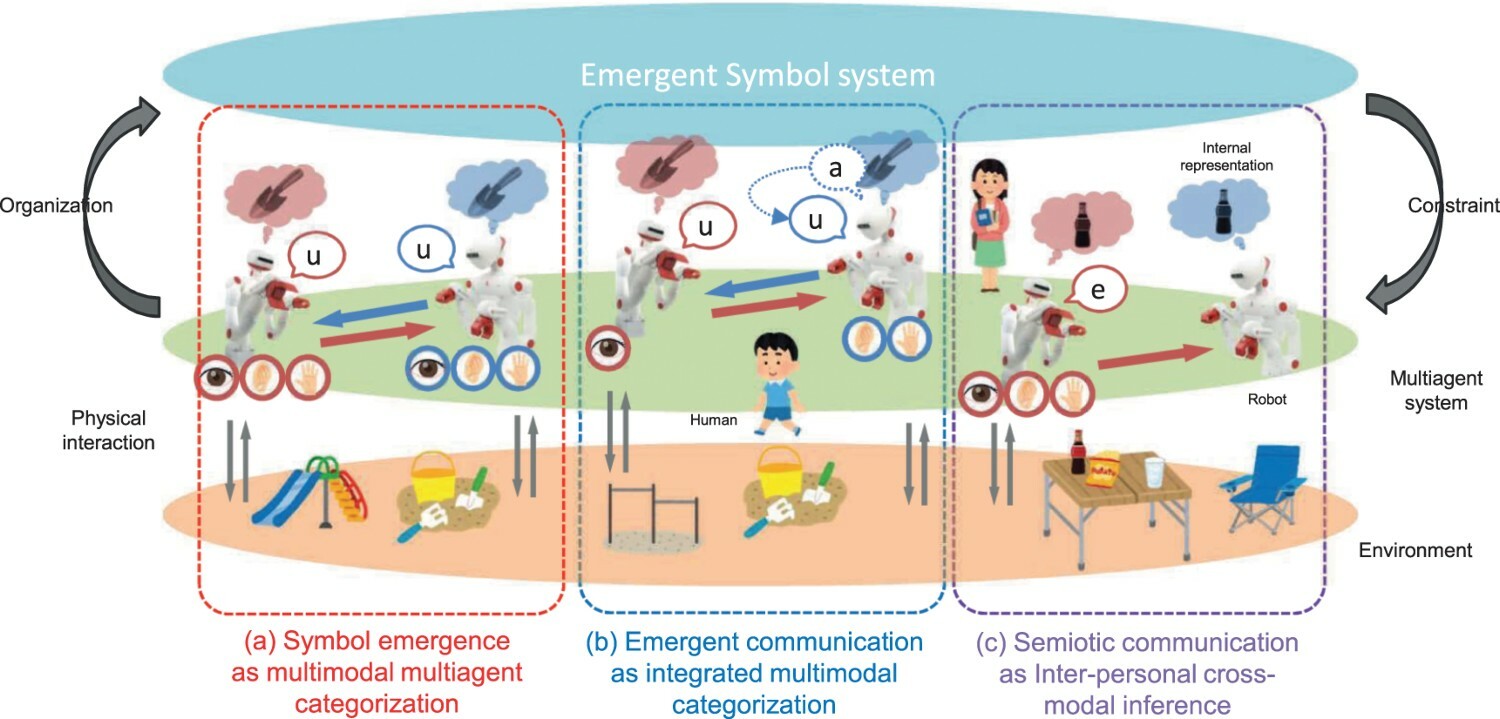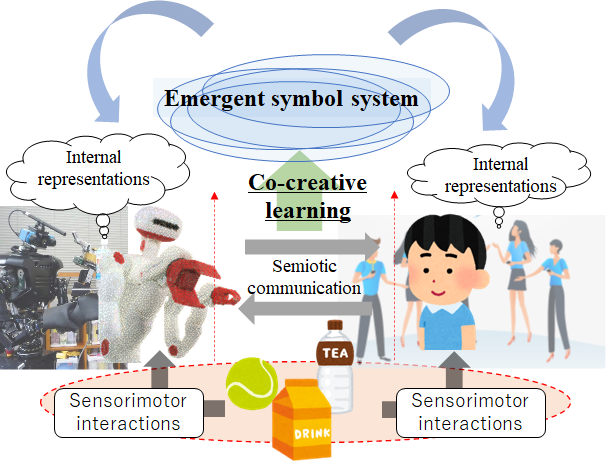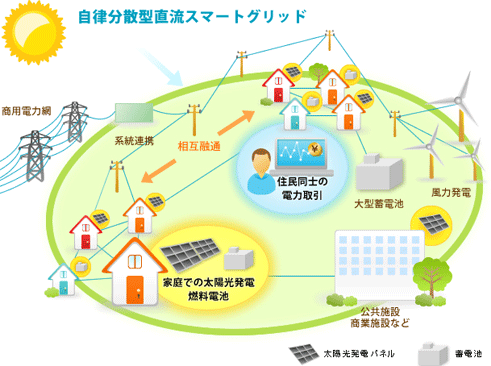
Our society is considered a decentralized autonomous system. In a centralized system, a central entity controls the entire system. In contrast, the individual components in a decentralized autonomous system behave independently, to some extent. For example, people within a given company make individual decisions but behave in a coordinated way as a collective. A city is not a living thing but changes like a living thing depending on the decision-making of its individual components (citizens). We follow a model-based approach and use multi-agent simulation techniques to better understand such decentralized autonomous systems and develop useful methods for our future society.
1. Symbol Emergence and Emergent Communication in Multi-agent Systems

Symbol emergence systems are comprised of many agents interacting with each other semiotically and with the physical environment using their sensorimotor systems. Through language evolution, humans became able to learn and use language. However, the capability of emergent communication enables humans to adapt to the world.

This research topic attempts to develop a computational model that can reproduce the process of the emergence of symbols in systems and language. This type of study is also referred to as emergent communication.
Also, we are aiming to apply the findings to human-robot interaction to achieve more semiotically adaptive communication as well.
Publication
-
Yoshinobu Hagiwara, Kazuma Furukawa, Akira Taniguchi & Tadahiro Taniguchi, Multiagent multimodal categorization for symbol emergence: emergent communication via interpersonal cross-modal inference, Advanced Robotics, 36(5-6), 239-260, 2022. https://doi.org/10.1080/01691864.2022.2029721
-
Yoshinobu Hagiwara, Hiroyoshi Kobayashi, Akira Taniguchi, and Tadahiro Taniguchi, Symbol Emergence as an Interpersonal Multimodal Categorization, Frontiers in Robotics and AI, 6(134), 1-17, 2019. DOI: 10.3389/frobt.2019.00134
2. Decentralized Autonomous Smart Grid

Since the industrial revolution, fossil fuels have been the main source of energy in our society. However, fossil fuels will disappear from our world in the future. To deal with the future situation, it is important to make use of renewable energies, including solar, wind, and water power, to overcome this crisis, i.e., fuel shortage. We have to change our power grid into a decentralized power network to effectively use such renewable energies. We proposed a decentralized autonomous smart grid named i-Rene. We are studying this system from the viewpoint of intelligent systems, economics, game theory, and control theory in order to develop and evaluate such a new power grid.
* Note that we are no longer working on this research topic.
Publication
-
Tadahiro Taniguchi, Tomohiro Takata, Yoshiro Fukui, and Koki Kawasaki, Convergent Double Auction Mechanism for a Prosumers’ Decentralized Smart Grid, Energies, 8(11), 12342-12361, 2015. doi:10.3390/en81112315
-
Tadahiro Taniguchi, Koki Kawasaki, Yoshiro Fukui, Tomohiro Takata, and Shiro Yano, Automated Linear Function Submission-Based Double Auction as Bottom-up Real-Time Pricing in a Regional Prosumers’ Electricity Network, Energies, 8(7), 7381-7406, 2015. doi:10.3390/en8077381
-
Yoshiro Fukui, Shiro Yano, Tadahiro Taniguchi, Convergence error analysis of the DSM with dual-decomposition for the smart grid, SICE Journal of Control, Measurement, and System Integration, 9(3), 115-121, 2016. https://doi.org/10.9746/jcmsi.9.115


















